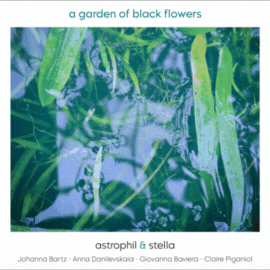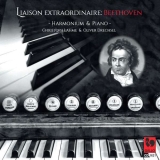 Liaison Extraordinaire: Beethoven; Beethoven / Doebber: Coriolan-Ouvertüre op. 62; Beethoven / Durand: Sextett Es-Dur op. 81b (2.-4.Satz); Beethoven / Reinhard: 2. Satz aus der Symphonie Nr. 7 + 1. Satz aus der Symphonie Nr. 5; Beethoven / Meraux: Andante aus dem Quintett Es-Dur op. 16; Drechsel: Dreaming of E. op. 46; Karg-Elert: 4 Sätze aus Beethovens Trio-Serenade op. 8; Oliver Drechsel, Klavier, Christoph Lahme, Harmonium; 1 CD Gallo 1621; Aufnahme 10/2018, Veröffentlichung 02/2021 (76'36) – Rezension von Norbert Tischer
Liaison Extraordinaire: Beethoven; Beethoven / Doebber: Coriolan-Ouvertüre op. 62; Beethoven / Durand: Sextett Es-Dur op. 81b (2.-4.Satz); Beethoven / Reinhard: 2. Satz aus der Symphonie Nr. 7 + 1. Satz aus der Symphonie Nr. 5; Beethoven / Meraux: Andante aus dem Quintett Es-Dur op. 16; Drechsel: Dreaming of E. op. 46; Karg-Elert: 4 Sätze aus Beethovens Trio-Serenade op. 8; Oliver Drechsel, Klavier, Christoph Lahme, Harmonium; 1 CD Gallo 1621; Aufnahme 10/2018, Veröffentlichung 02/2021 (76'36) – Rezension von Norbert Tischer
Das Harmonium war im 19. Jahrhundert ein viel genutztes Instrument. Einige Komponisten, so auch Rossini, gaben ihm eine Rolle in ihren Werken. Und es kam zu zahllosen Bearbeitungen für Klavier und Harmonium, darunter auch solchen von Kompositionen Ludwig van Beethovens.
Das für diese CD benutzte Harmonium von Alexandre aus Paris, gebaut um 1880, wird sowohl der Klangwelt des frühen Instrumententyps, von dem Durand bei seiner Bearbeitung des Sextetts ausging, als auch Karg-Elerts anspruchsvollem Arrangement der Trio-Serenade gerecht.
Oliver Drechsel und Christoph Lahme spielen das sehr aparte Programm mit viel Engagement und auf exzellentem musikalischem Niveau, so dass die Musik in ungewöhnlicher Kombination neue Klangfarben erhält. Was letztlich am meisten auffällt ist, dass die Interpreten nicht die Instrumente, sondern die Musik in den Vordergrund stellen und sich ihr ohne Konzessionen an das Instrumentarium widmen. Beethoven behält das Sagen in dieser Liaison.
The harmonium was a much used instrument in the 19th century. Some composers, including Rossini, gave it a role in their works. And there were countless arrangements, including those of compositions by Ludwig van Beethoven for piano and harmonium.
The Alexandre harmonium from Paris used for this CD, built around 1880, meets the requirements of both the sound of the early instrument type from which Durand started in his arrangement of Beethoven’s sextet and Karg-Elert’s demanding arrangement of the Trio Serenade.
Oliver Drechsel and Christoph Lahme play the very distinctive program with great commitment and at an excellent musical level, giving the music new timbres in unusual combinations. What is ultimately most striking is that the performers do not put the instruments but the music in the foreground and devote themselves to it without concessions to the instruments. Beethoven retains the say in this liaison.

























